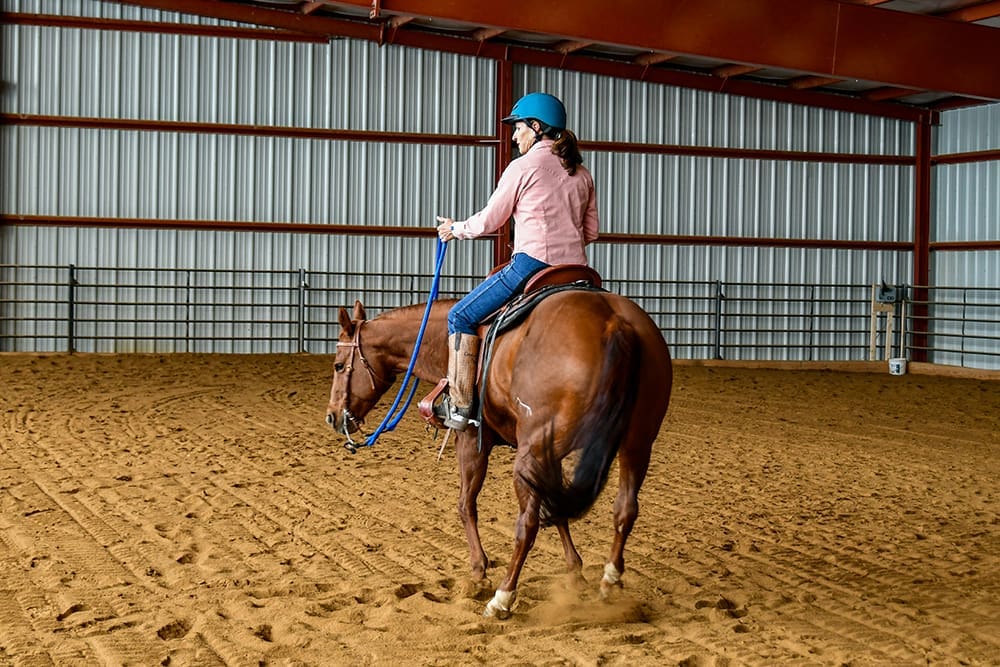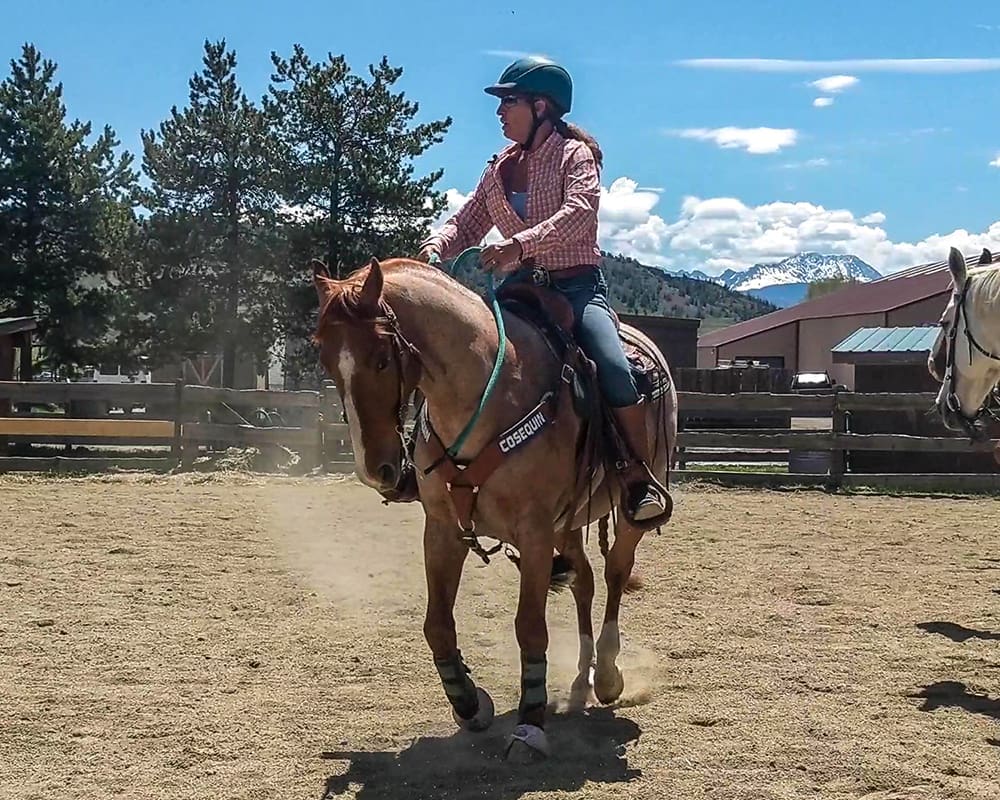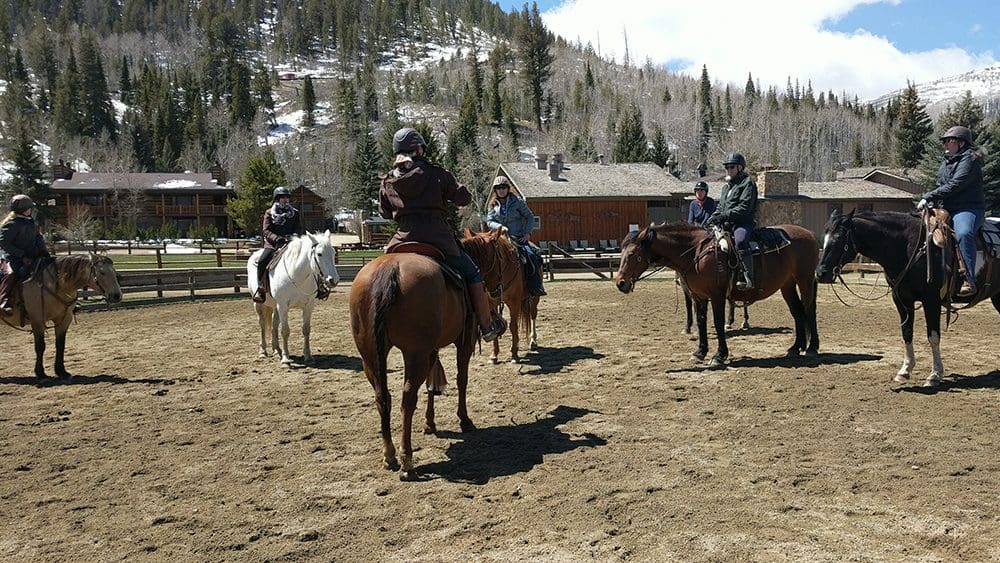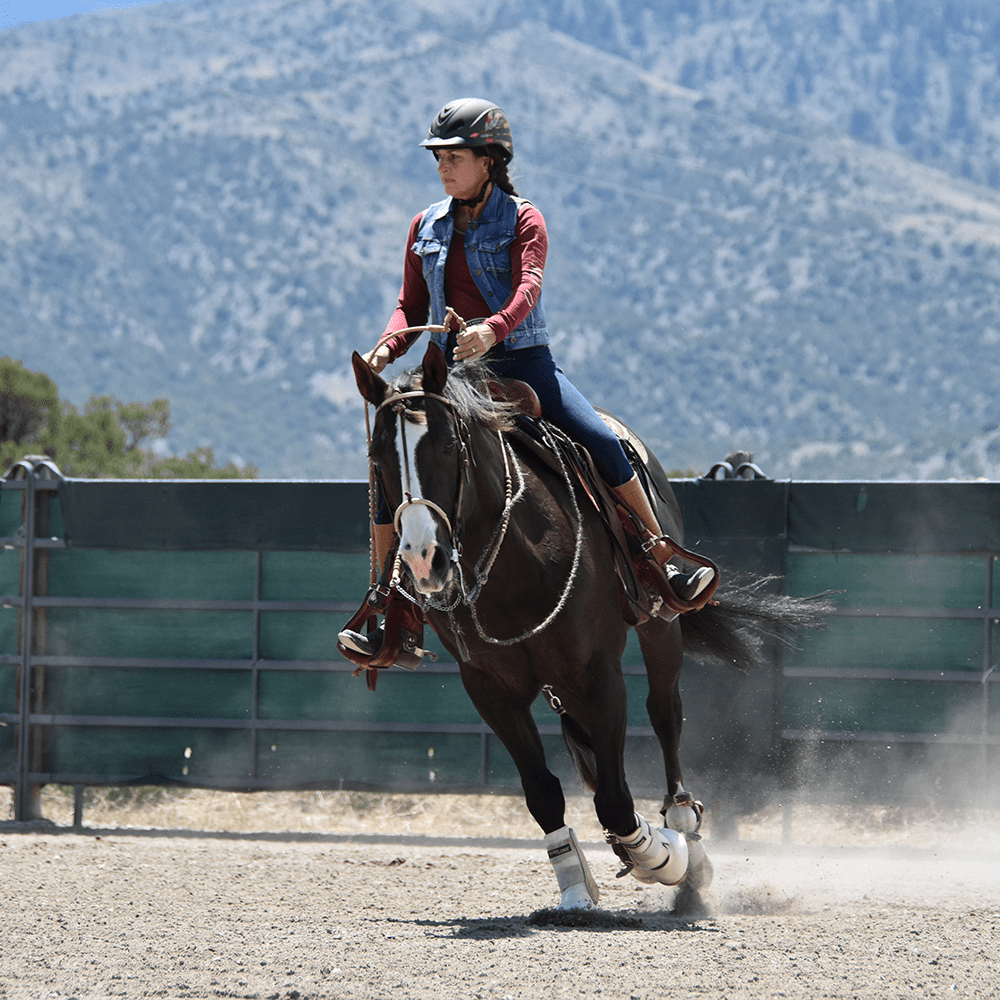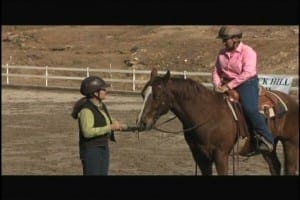 Recently on Horse Master is an episode called “Master and Commander.” It’s about a woman who did all the right things when looking for a horse—she bought a mature, push-button reiner from which she could learn and excel on. Renae is an experienced, life-long rider but yet she never had any formal training. She did have enough experience to know that she wanted a horse with more training than she had, so that she could advance her horsemanship. The only problem was that she doubted herself.
Recently on Horse Master is an episode called “Master and Commander.” It’s about a woman who did all the right things when looking for a horse—she bought a mature, push-button reiner from which she could learn and excel on. Renae is an experienced, life-long rider but yet she never had any formal training. She did have enough experience to know that she wanted a horse with more training than she had, so that she could advance her horsemanship. The only problem was that she doubted herself.
I see this kind of thing all the time—from all level of riders. When they go out and purchase a well-trained horse—an excellent thing to do—they tend to worry excessively about screwing the horse up. This kind of thinking leads to self-doubt and paralysis, which most horses will capitalize on. In the case of Renae—who was a very good rider—every time her horse resisted her, she became totally passive, thinking she was making some awful mistake. She thought she was miscuing the horse so he didn’t know what to do. From the horse’s point of view, he was thinking, “Chaching! I don’t have to do what she asks.” Although he was a well-trained and cute little horse, he had a little bratty side and her lack of authority led to him doing whatever he wanted to do—and nothing more.
When Renae asked him to canter, he went for a few strides then turned sharply into the middle of the arena and stopped. Renae convinced herself that she must be mistakenly cueing him to spin and that it was her fault. So she became passive and allowed the horse to come into the middle and stop. When she did insist that he continue cantering, he threw a few mild bucks and that definitely make her stop him. Again, the horse found out how to make his rider ease up. He didn’t have to exert energy after a mild buck.
My first job was to let him know that his antics wouldn’t work with me. I put him to work in no uncertain terms. He bucked a few times but very quickly determined that the path of least resistance was obedience. He quickly turned into Mr. Manners.
My second job–which was not as easy–was to build Renae’s confidence and convince her that she needed to take charge of this horse. I reminded her that she was indeed a perfectly good rider and that she need not worry about giving her horse a perfect cue—It was her horse’s job to figure out what she wanted.
It was sad to see how devastated Renae was when we started; she had totally convinced herself that she was unworthy of this horse and was a terrible horse rider. When in fact, she had excellent skills and it was her self-doubt that had led to all her problems. She finished up feeling good about herself and her ability to take charge of this horse. I hope that comes through in the show.
My overall advice from this episode? Once you have issued a directive, reinforce it—whether your cue was perfect or not. Your horse is perfectly capable of figuring out what you want. Don’t waffle in your authority.
We all have periods of self-doubt. At least I know I do–how about you? What’s important is to analyze your thought, make changes and move forward with a positive attitude. Have you ever been paralyzed by self doubt and let it affect your riding? What happened to you? Have you had a horse get the better of you simply because of your inaction? How did you figure it out and what did you do to make a positive change? I love hearing your stories. . . .Email your story at: podcast@juliegoodnight.com
Heels down and chin up!
Julie
Become a Library Member to view all of Julie’s Horse Master Episodes: Membership
